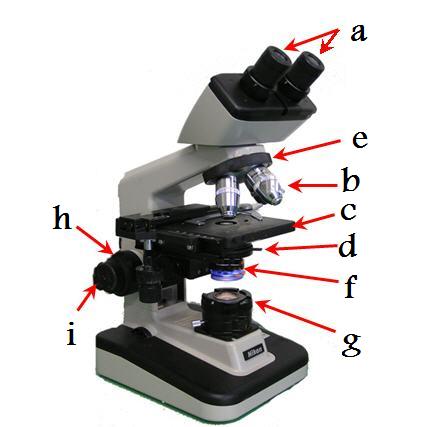Cards In This Set
| Front | Back |
|
Bright-field, dark-field, phase contrast and fluorescent microscopy are all what type of microscope?
|
Light microscopy
|
|
Microscope that illuminates the background while the specimen appears dark.
|
Bright-field
|
|
Microscopes that employ multiple lenses for better magnification.
|
Compound microscope
|
 The lens you physically look through that has a fixed magnification of 10x (indicated by the letter a). It is responsible for projecting the image to the viewer. |
Oculars
|
 Multiple lenses with different magnifications, located directly above the specimen (indicated by the letter b). They are usually color coded and are the first lenses responsible for picking up the resolution and magnification information from the object. |
Objectives
|
 The platform that supports the specimen and a spring-loaded clip holds it in place (indicated by the letter c). A rack and pinion mechanism moves the specimen slide in two directions. |
Stage
|
 Part of the microscope responsible for focusing the light before it hits the specimen (indicated by the letter d). |
Condenser
|
 Allows the viewer to adjust the magnification power of the microscope by moving the objectives (indicated by the letter e). |
Rotating Nosepiece
|
 Controls both the angle at which light approaches a specimen and the coherence of the light (indicated by the letter f). |
Iris Diaphragm
|
 Controls the diameter of the beam of light entering the condenser and thus excludes extraneous light, improving image contract (indicated by the letter g). |
Field Diaphragm
|
 h and i are used to bring the sample into focus by moving it toward or away from the objective. Indicate what each letter represents |
h is the Course Focusing Knobi is the Fine Focusing Knob
|
|
The enlargement of a specimen
|
Magnification
|
|
Oculars x Objective is called what?
|
Total Magnification
|
|
Refers to a microscope's ability to stay in focus when adjusting the objective lens to a higher power.
|
Parafocal
|
|
Refers to the ability of the microscope to keep the specimen the viewer has in focus centered each time you increase magnification
|
Parcentric
|



